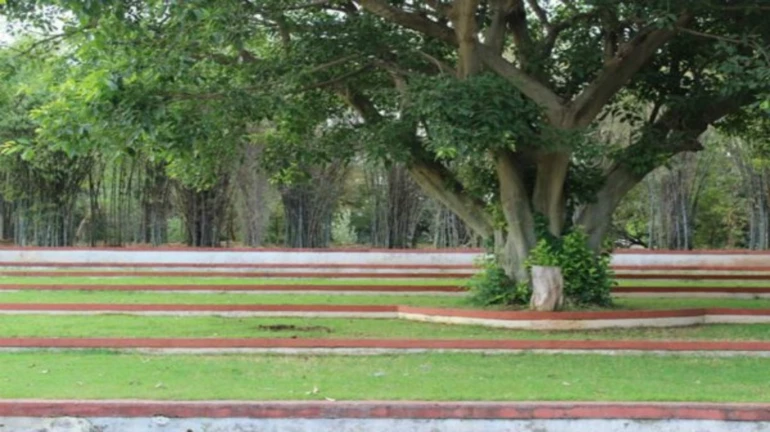
Extreme weather conditions, untimely rains, scorching heat and frequent natural calamities are the by-products of destructive human activities, an inordinate amount of greenhouse gases, deforestation and destabilised ecosystems. Increased use of plastic and non-biodegradable products is stressing the environment even more. As global conferences and youth-led mass movements address the danger of climate change on a broader scale, we as individuals can also do our bit for the environment right at home. If all of us take the initiative to make small changes in our lives, cumulatively they will make a huge positive impact on the environment.
Here are a few ways in which we can all do our bit for Mother Earth:
Plant, donate or gift a tree
Gifting a sapling to a loved one on a special day or planting a tree to memorialise an occasion or a relationship are simple ways to give back to the earth. Trees are possibly one of the most thoughtful and eco-friendly gifts as they leave a lasting and loving impression on the earth. As per the statistics provided by Global Forest Watch, in 2021, India lost 24.8 kha of forest cover, which is equivalent to 64.6 Mt of carbon dioxide emissions being added to the environment. If you are wondering how you can begin an afforestation process, checkout the website of social organisation, Grow-Trees.com which not only undertakes huge plantation projects on public land with the help of corporate and local communities but also enables individuals to gift and plant trees with just one click. Greetings are sent through an eTreeCertificate or eTree Card to one or many people. Be it any occasion – birthdays, weddings, anniversaries or festivals, Grow-Trees.com helps you to mark an important day with an eco-sensitive gesture. Each tree you plant will purify the air and help increase the country's green cover.
Ditch single-use plastics
Single-use plastics like disposable cups and take away containers are a part of our everyday life but the harm they can cause to the environment is beyond our comprehension. Scientists predict that by 2050, there will be more plastic than fish in water bodies, especially in oceans. Straws, chocolate wrappers, plastic cups, bottles, and bags create around 300 million tons of plastic each year and leave a huge carbon footprint on the planet. They are also consumed by animals and also contaminate groundwater and the food chain. As responsible citizens, we can all carry our own bags for shopping and switch to metal and bamboo straws, metal bottles and mugs. One can also stop buying over packaged produce from supermarkets and instead buy fresh vegetables and fruits from local farmers.
Build an eco-sensitive home
As architects like Didi Contractor, Chitra Vishwanath, Laurie Baker and Charles Correa have proven, sustainable architecture can also be beautiful, comfortable and affordable. Building a green home with climate appropriate, locally available materials, using solar panels, composting waste and harvesting rainwater can make a huge difference to the earth. Also, houses can be constructed in such a way that ample light and air get in and there is natural ventilation. This and the use of CFL bulbs will reduce the use of electric power. Reports say that 40% of greenhouse gas emissions are from the construction sector. Minimising construction waste should be a priority and we must realise that transporting materials like Italian marble or granite etc., from other states can leave behind a big footprint. The use of locally sourced stones like laterite, bamboo, mud and sun baked bricks is becoming increasingly popular among those who want to build green homes.
Switch to slow fashion
Cheap but fast wearing clothes that we buy online often end up in overflowing landfills and it is time to think about the true cost of fast fashion. Our independence movement was focused upon Swadeshi products including Khadi and maybe it is time to announce our independence from synthetic, unsustainable fabrics. Khadi is slowly coming back in vogue and in October 2021, the Khadi & Village Industries Commission (KVIC), in Delhi saw an exponential sale of Rs 1.02 crore. Since Khadi is spun and woven manually, it also has a low carbon footprint. Compared to mill-produced fabric that consumes 55 litres of water per metre, Khadi consumes only three litres. It also provides rural employment opportunities. Popular brands are also introducing fabrics like linen, mulmul and bamboo cotton while designers are upcycling vintage fabric and creating slow fashion that lasts long.
Reduce, Reuse, Recycle
One of the biggest issues the earth is facing today is the accumulation of unsegregated waste. We can segregate our waste and also reconsider the culture of impulse led shopping which wastes money and often clutters our home with things we don't need. We can also follow the “three R’s” of waste management to create a sustainable life and to prevent stuff from ending in landfills. We can all resist the urge to buy unnecessary things and also repair and reuse items rather than replacing them. We can also upcycle and recycle furniture, clothes and objects to continue using them rather than discarding them thoughtlessly.





